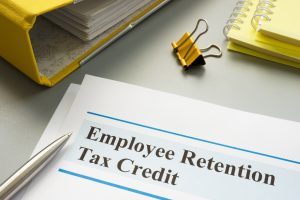The IRS unveils ERTC relief program for employers
 Since July 2023, the IRS has been responding to a “flood of ineligible claims” for the Employee Retention Tax Credit (ERTC) with several measures. Most recently, it introduced the Voluntary Disclosure Program (VDP), another ERTC relief program. The initiative offers qualified companies a worthwhile temporary opportunity.
Since July 2023, the IRS has been responding to a “flood of ineligible claims” for the Employee Retention Tax Credit (ERTC) with several measures. Most recently, it introduced the Voluntary Disclosure Program (VDP), another ERTC relief program. The initiative offers qualified companies a worthwhile temporary opportunity.
Flood of invalid ERTC claims
The ERTC is a refundable tax credit for companies that either:
- Continued to pay their workers during the pandemic shutdown in 2020 and 2021
- Experienced a notable decrease in gross receipts between March 13, 2020, and December 31, 2021
Fraudulent promoters and marketers swiftly pounced. They offer to assist employers in filing claims in exchange for hefty upfront payments or percentages of the money obtained, with the credits valued at up to $26,000 per retained employee. However, due to the credit’s strict conditions and the fact that many scams of employer claims later turned out to be false, individuals who made the claims run the possibility of being liable for the credit’s repayment, penalties, and interest, in addition to other tax issues.
IRS’s response
The IRS stepped up its audits and criminal investigations of promoters and companies making questionable claims. As of December 2023, there were reports of hundreds of ERTC claims for audit. Over 300 criminal cases were pending, with claims totaling nearly $3 billion.
Additionally, the IRS has stopped processing new ERTC claims. In October 2023, it started providing qualifying employers who had submitted a claim but had yet to receive, pay, or deposit a refund with a withdrawal option. Refunds, fines, and interest are not a concern for taxpayers who withdraw claims because they will treat them as though they have yet to be filed.
The IRS unveiled the VDP at the end of December 2023. The program’s target audience is employers who requested and got credit money but weren’t eligible for it.
The VDP
Participating employers in the VDP stand to gain in several ways. For instance, they only have to pay back 80% of the credit they received. If total payback is not feasible, the IRS may approve an installment plan. Additionally, they are not obliged to change their income tax filings to lower labor costs. They also do not need to return any interest they may have earned on an ERTC refund.
If the 80% repayment is complete before the signed closing agreement is sent back to the IRS, these employers will not be liable for penalties or underpayment interest. The 20% reduction will not be considered taxable income for the tax periods covered by the closing agreement. In that case, the IRS will not audit the ERTC on employment tax returns.
An employer can apply for the VDP for each tax period in which:
- Its ERTC claim was processed and paid as a refund that has been cashed or deposited, or it was paid in the form of a credit applied to that or another tax period
- It believes it wasn’t entitled to the ERTC
- It isn’t under IRS audit for employment taxes
- It isn’t under IRS criminal investigation
- The IRS has not reversed or notified the employer of its intent to reverse the ERTC to zero (for example, with a letter or notice disallowing the credit)
The ERTC relief program
Notably, in addition to the 20,000 denial letters it previously delivered, the IRS is also sending up to 20,000 letters proposing tax modifications for the 2020 tax year to collect claims that are not qualified. There will be additional mailings from the government as it works on the 2021 tax year. The IRS will follow standard tax assessment and collection procedures when an employer receives an excessive or incorrect number of ERTCs through this effort.
The employer can only participate in this relief program through the third-party payer if the payer files an employment tax return that includes the employer’s wages and credits linked to ERTC. It will be denied if it applies using its employer identification number.
Remember that not all of the ERTC claims were invalid. Regardless of whether you’ve received payment, we can assist you in navigating this increasingly complicated area of your tax liability if you have any doubts regarding the legality of your claim. However, the VDP will only be available until March 22, 2024, so act quickly. If you have any questions, please contact our RRBB advisors.
© 2024
RRBB eNEWSLETTER
Get free tax planning and financial advice




